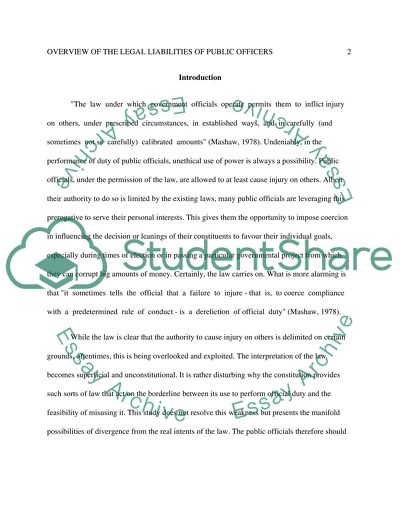Cite this document
(“Overview of the Legal Liabilities of Public Officers Essay”, n.d.)
Overview of the Legal Liabilities of Public Officers Essay. Retrieved from https://studentshare.org/law/1452798-legal-liabilities-of-police-officers
Overview of the Legal Liabilities of Public Officers Essay. Retrieved from https://studentshare.org/law/1452798-legal-liabilities-of-police-officers
(Overview of the Legal Liabilities of Public Officers Essay)
Overview of the Legal Liabilities of Public Officers Essay. https://studentshare.org/law/1452798-legal-liabilities-of-police-officers.
Overview of the Legal Liabilities of Public Officers Essay. https://studentshare.org/law/1452798-legal-liabilities-of-police-officers.
“Overview of the Legal Liabilities of Public Officers Essay”, n.d. https://studentshare.org/law/1452798-legal-liabilities-of-police-officers.


